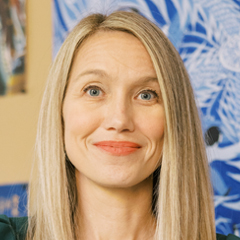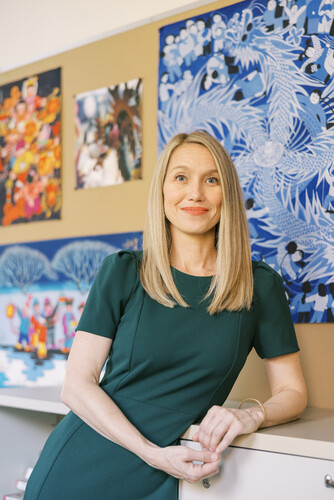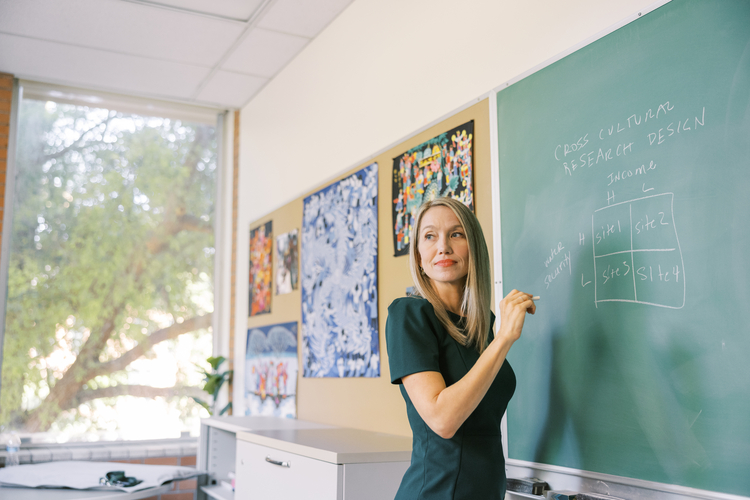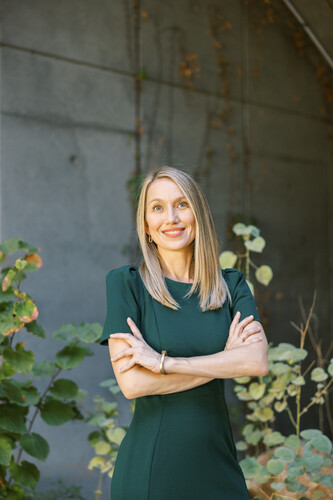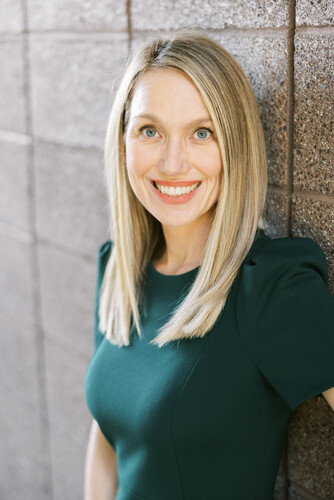About Amber’s Work
Amber Wutich is an anthropologist investigating the impact of water insecurity on human well‑being. In ethnographic fieldwork and cross-cultural comparative analyses, she identifies the cultural norms, informal economies, and social networks that communities develop to cope with inadequate access to safe water.
Wutich’s early work focused on a community within Cochabamba, Bolivia, that arose when the mining industry collapse prompted large-scale migration to the city. The local government’s neglect of basic infrastructure left the community without access to safe water. Wutich developed a methodology for documenting and measuring residents’ water needs and resources. Two key areas of inquiry emerged from her research. First, she identified the social infrastructure that replaced missing physical infrastructure: households that could not regularly transport water from public standpipes relied on local water vendors and self-organized water sharing arrangements. Second, she documented how water insecurity led to significant anxiety and distress. Wutich has since expanded research into informal water access solutions and the mental health effects of water insecurity. She has also organized an international and cross-disciplinary network of scholars that is building a collective body of research on water insecurity causes, effects, and solutions. She co-founded and co-directs the Global Ethnohydrology Study (GES). For nearly two decades, GES has studied local knowledge about water issues and coping methods for water insecurity in over 20 countries. Wutich and her team created standardized techniques for collection and analysis of culturally specific data. Their measurement and assessment tools enable meaningful comparisons across ecologically and culturally distinct regions about such issues as hygiene norms and stigma in water-poor environments, acceptance of wastewater reuse, and COVID-19 risk in low-water communities. Wutich and her team are also deepening understanding of the link between mental health and water insecurity. They found that water scarcity itself is not the primary driver of distress. Rather, unequal access to water distribution systems, the stigma attached to negotiating for water, and the burdensome nature of some water-sharing arrangements lead to distress and anxiety.
Wutich’s most recent work identifies small-scale solutions for water insecurity in rural, unincorporated, or marginalized communities within high-income countries. Action for Water Equity, a collaborative project, develops innovations in water sharing and social and physical infrastructure with residents in colonias on the U.S.-Mexico border. Wutich’s rigorous empirical research, done with a sensitivity to the knowledge and needs of vulnerable communities, is critical to ensuring access to safe and adequate water for all.
Biography
Amber Wutich received a BA (2000) and PhD (2006) from the University of Florida. She has been affiliated with Arizona State University since 2006 and is currently a President’s Professor of Anthropology and director of the Center for Global Health. She is the co-author of the books Analyzing Qualitative Data: Systematic Approaches (2nd ed., 2016), Lazy, Crazy, and Disgusting: Stigma and the Undoing of Global Health (2019), and Fat in Four Cultures: A Global Ethnography of Weight (2021), and her articles have appeared in American Anthropologist, WIREs Water, and Social Science and Medicine, among other journals.
Published on October 4, 2023







